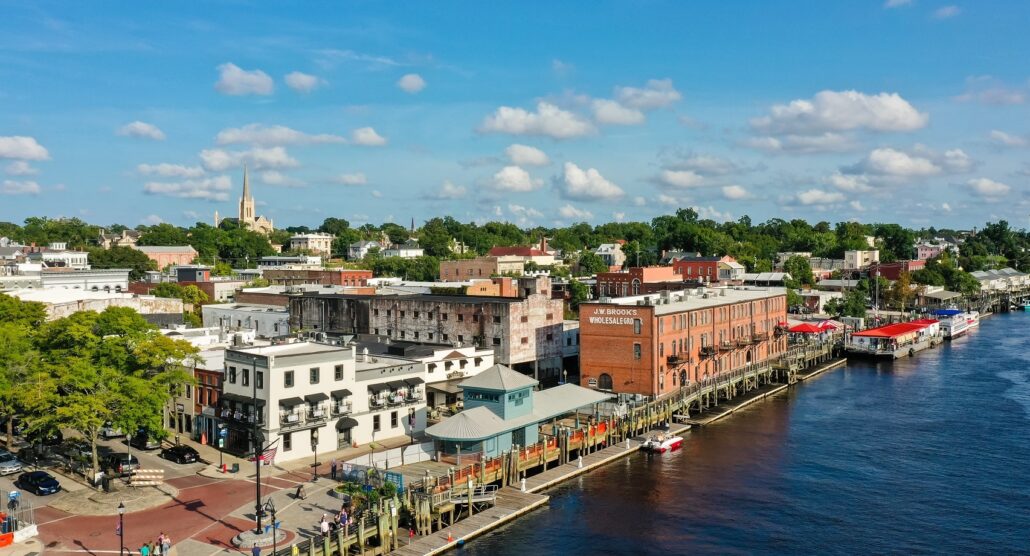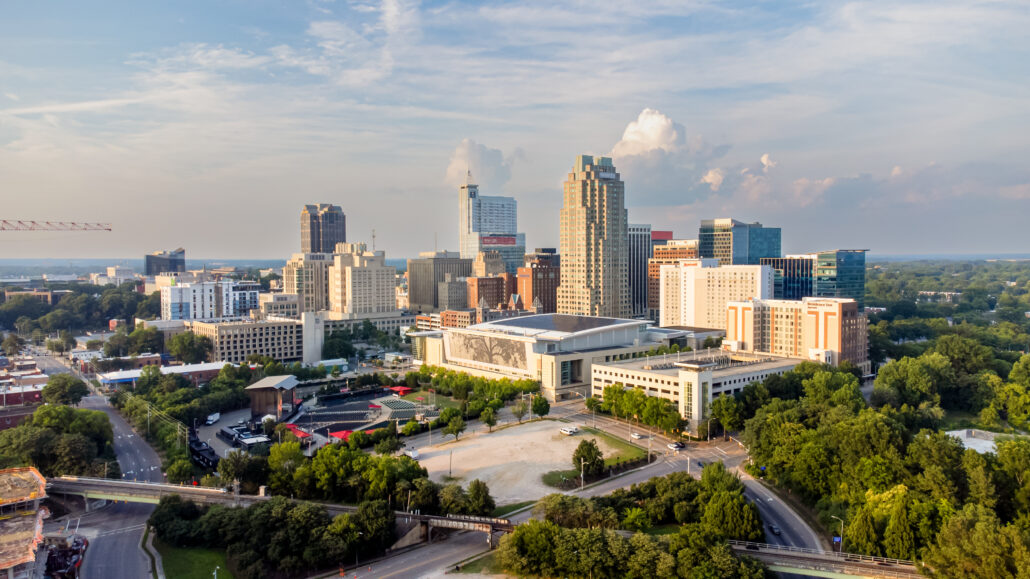Promoting Recovery from Substance Addiction with North Carolina Halfway Houses

North Carolina, a state nestled in the southeastern region of the United States, boasts a rich tapestry of history, culture, and natural beauty. From the majestic peaks of the Blue Ridge Mountains to the tranquil shores of the Outer Banks, North Carolina offers an array of breathtaking landscapes to explore. Its vibrant cities, including Charlotte, Raleigh, and Asheville, pulsate with energy and offer diverse experiences ranging from urban sophistication to eclectic charm.
Exploring North Carolina’s rich history and charming atmosphere is a delightful experience. However, it’s important to approach the state’s prevalent issues regarding substance abuse with caution and awareness for a well-rounded understanding. Through the incorporation of halfway houses into North Carolina’s communities, the state aims to strengthen its efforts in combating substance abuse and aiding individuals in their recovery journey. Halfway houses in North Carolina provide a secure and structured environment, fostering a sense of belonging and empowerment among residents. This initiative contributes to promoting healthier individuals and communities statewide.
Path to Freedom from Opioid Drug Addiction and Misuse with Wilmington Halfway Houses

default
Wilmington, North Carolina, boasts a captivating blend of Southern charm and coastal beauty. Steeped in history, the city’s vibrant downtown district features charming antebellum architecture lining the streets. Take a stroll down Riverwalk, a delightful waterfront promenade dotted with shops, restaurants, and street performers. Within this dynamic interplay of tradition and progress, a nuanced conflict arises: the persistent battle against opioid addiction and misuse. Halfway houses provide support in combating the dangers of substance abuse. By implementing effective strategies, they provide residents with the knowledge and resources needed to avoid its abuse. It’s important for residents to understand the increased risks associated with opioids. Even small amounts can be fatal, and opioid use itself carries inherent dangers. Whether seeking solace in the city’s famous landmarks or hidden gems, halfway houses in Wilmington are essential for those on the journey to recovery.
Attaining Liberty from Opioid Abuse and Addiction with Raleigh Halfway Houses

Raleigh, North Carolina, stands as a vibrant metropolis blending southern charm with modern innovation. As the state capital, it boasts a rich history evident in its historic neighborhoods and landmarks like the North Carolina State Capitol. Yet, it’s not just about tradition; Raleigh pulses with energy fueled by its thriving tech scene, anchored by the Research Triangle Park. Despite its allure, Raleigh, like many other towns across the country, contends with various issues, including opioid abuse and addiction.
Halfway houses serve as a valuable resource in the battle against opioid abuse. Halfway houses in Raleigh offer a range of benefits for individuals recovering from addiction. Beyond providing stability, halfway houses foster a sense of community. Residents connect with peers who understand their challenges, establishing a support system that promotes accountability and belonging. This community support is crucial not only during their time at the halfway house but also as they reintegrate into society. Through collaborative efforts, we can enhance the effectiveness of halfway houses in addressing opioid addiction. Recovery is attainable, and halfway houses serve as a beacon of hope for those seeking a path towards a healthier life.
A Journey of Healing from Alcohol Abuse Issues with Asheville Halfway Houses

Nestled within the picturesque Blue Ridge Mountains of North Carolina, Asheville is renowned for its stunning natural landscapes and abundant outdoor recreational opportunities. With the highest concentration of breweries per capita in the United States, it’s a paradise for craft beer enthusiasts. However, beneath its charm lies a growing concern – alcohol abuse. Nevertheless, a significant portion of Asheville’s population grapples with the adverse effects of excessive drinking, impacting their health, relationships, and community well-being.
Halfway houses serve as a beacon of hope for those grappling with alcohol abuse. They offer a structured support system for individuals who are either transitioning from treatment or struggling to sustain sobriety on their own. Peer support proves invaluable in overcoming addiction hurdles. If you or someone you know is facing alcohol abuse, consider the supportive resources provided by halfway houses in Asheville. These programs offer a structured living arrangement throughout the recovery process, paving the way toward a healthier and more fulfilling life.
Be Free from the Grip of Fentanyl Addiction through Greensboro Halfway Houses

Greensboro, situated in North Carolina, is imbued with the warmth of Southern charm and boasts a rich historical background. It has played significant roles in both the American Civil War and the Civil Rights Movement, offering visitors numerous museums to explore, including the International Civil Rights Center & Museum and the Greensboro Science Center. The city’s vibrant art scene is evident in its many galleries and studios. Despite its appealing qualities, Greensboro faces challenges typical of urban areas, such as issues related to fentanyl addiction and abuse.
Given the widespread presence of fentanyl, addressing the opioid crisis necessitates a comprehensive approach. Halfway houses serve as crucial resources, offering individuals the necessary support and assistance to successfully reintegrate into society and pursue fulfilling lives free from addiction. In response to the escalating battle against addiction, halfway houses in Greensboro provide a nurturing environment for individuals beginning their recovery journey from fentanyl abuse and withdrawal. With the right environment and a strong support system in place, recovery from addiction is possible.
Charlotte Halfway Houses to Help Address Issues of Fentanyl-Related Deaths

Charlotte, North Carolina, often referred to as the “Queen City,” is a dynamic metropolitan area nestled in the southern United States. Renowned for its vibrant financial sector, Charlotte has established itself as a prominent banking hub. The city’s impressive skyline is dominated by landmarks such as the Bank of America Corporate Center. However, Charlotte faces significant challenges, notably the prevalence of illegal drugs and the concerning rise in fentanyl-related deaths, reflecting broader societal issues that require attention and action. In response to the concerning increase in drug overdose and deaths in Charlotte, halfway houses play a vital role in supporting individuals on their path to recovery and in preventing relapses. It’s important to raise awareness about the risks associated with drug addiction among residents. If you’re seeking to break free from dangerous drugs, consider reaching out to a halfway house in Charlotte. They offer valuable support to help you achieve long-term sobriety and lead a fulfilling life.
Find Effective Strategies for Recovery from Substance Abuse with North Carolina Halfway Houses
North Carolina boasts a diverse landscape and vibrant culture, offering something for everyone. In the coastal gem of Wilmington, history comes alive with its charming waterfront and rich maritime heritage. Meanwhile, the bustling capital city of Raleigh serves as a hub of innovation and culture, home to renowned universities and a thriving tech scene. Head west to Asheville, nestled in the picturesque Blue Ridge Mountains, where art, music, and outdoor adventures await around every corner. In Greensboro, history and modernity intersect seamlessly, offering a blend of historic sites, lively arts scene, and dynamic culinary experiences. And Charlotte, the state’s largest city and a major financial center, where skyscrapers dot the skyline and a cosmopolitan atmosphere thrives amidst a backdrop of southern charm.
Exploring the dynamic cities of North Carolina reveals a strong emphasis on healing and solidarity within halfway houses. Allowing these facilities to assist can play a significant role in preventing and addressing the crisis of substance addiction. If you or someone you know is grappling with substance use and its risks, taking the first step today can provide vital support for a transformative progress in your life.
Find Halfway House in this Location
Primary Service: drug and alcohol dependency
Address : 9 Old Burnsville Hill Road Suite 7 , Asheville , 28804
Primary Service: Substance Abuse Treatment Services
Address : 1700 E Ash St #201 , Goldsboro, 27530
Primary Service: Mental Health Services
Address : 102 Towerview Court, Cary, 27513
Hopeway
(1)Primary Service: Mental Health Services
Address : 1717 Sharon Road West, Charlotte, 28210
Primary Service: Mental Health Services
Address : 1437 Military Cutoff Rd Suite 200 , Wilmington, 28403
Primary Service: Mental Health Services
Address : 115 Kildaire Park Dr Ste 402, Cary, 27518
Primary Service: Substance Abuse Treatment Services
Address : 1611 East 7th Street , Charlotte, 28204
Primary Service: ⦁ Substance Use Disorders
Address : 200 Northview Plaza , North Wilkesboro, 28659
Primary Service: Mental Health Services
Address : 245 Le Phillip Ct, Concord, 28025
Primary Service: Mental Health Services
Address : 7301 Carmel Executive Park Dr. Suite 218 , Charlotte, 28226